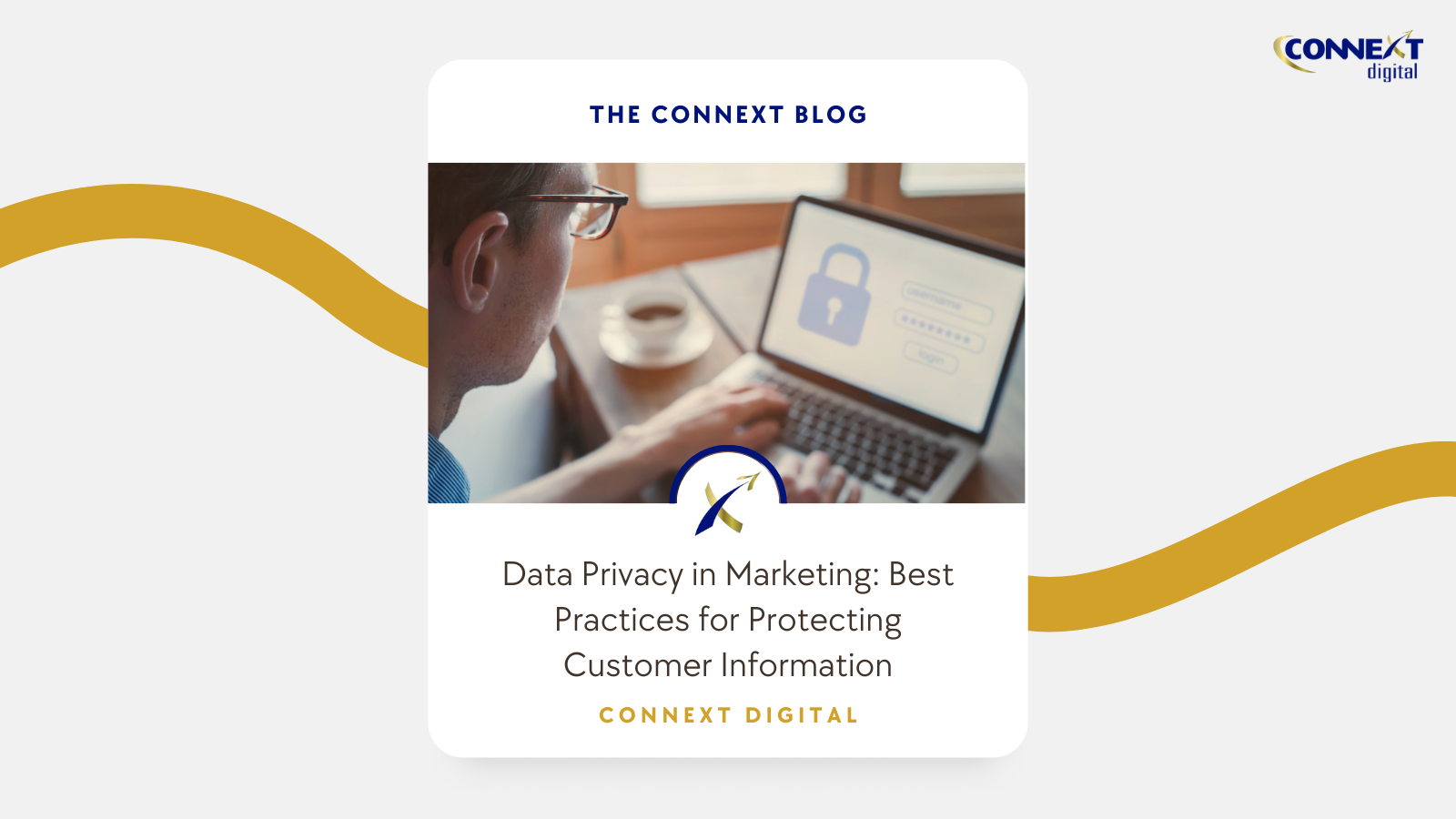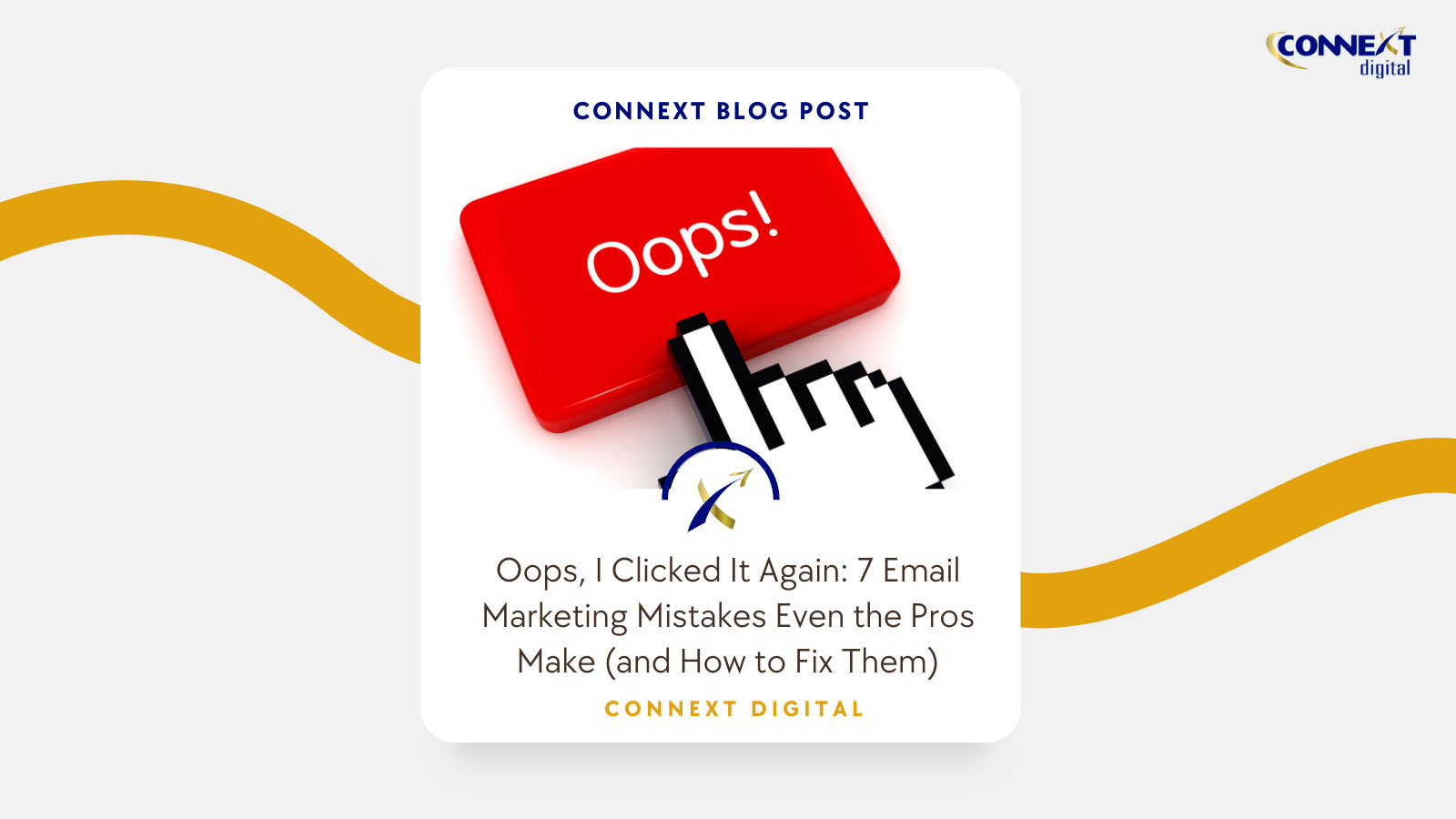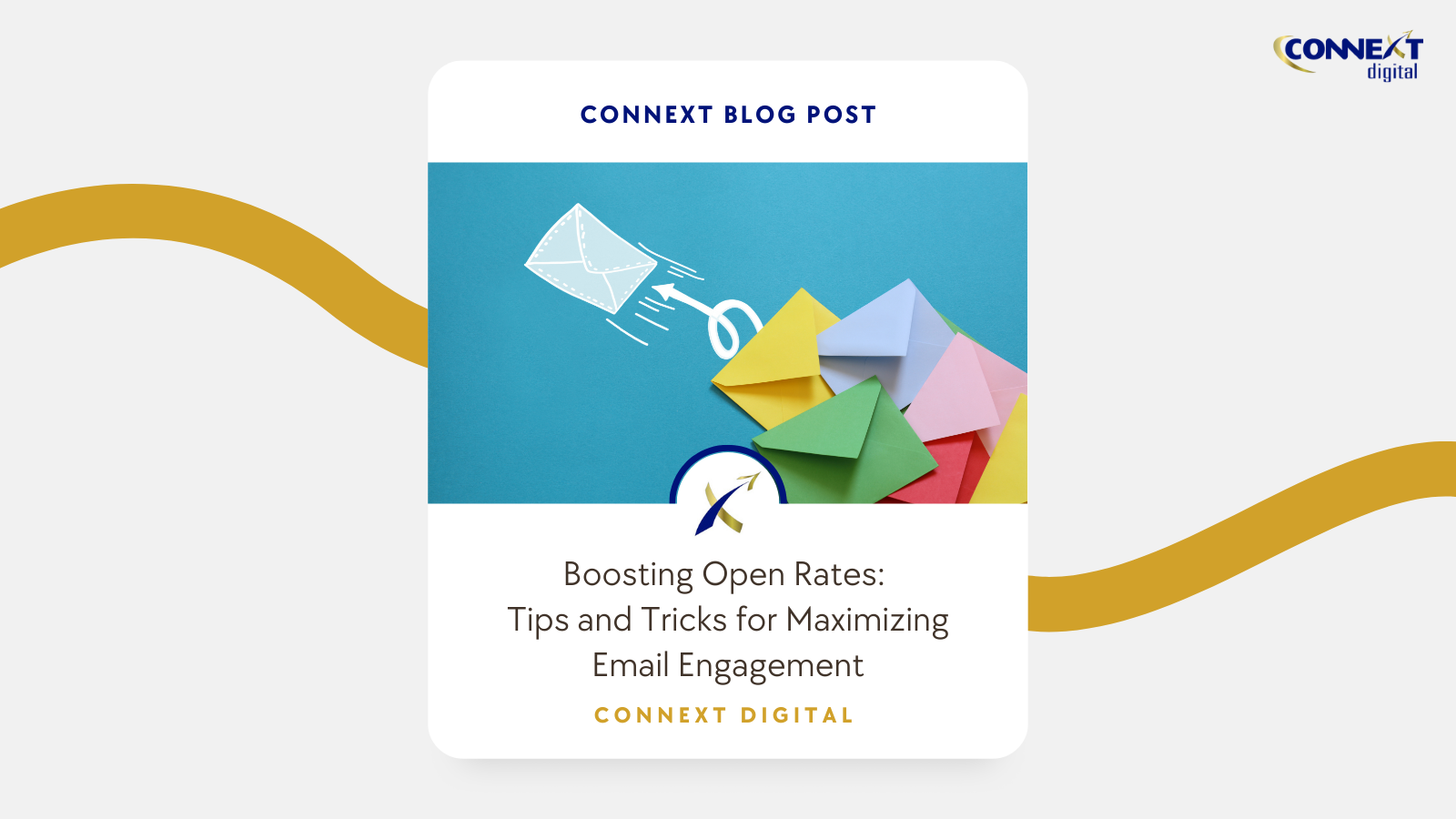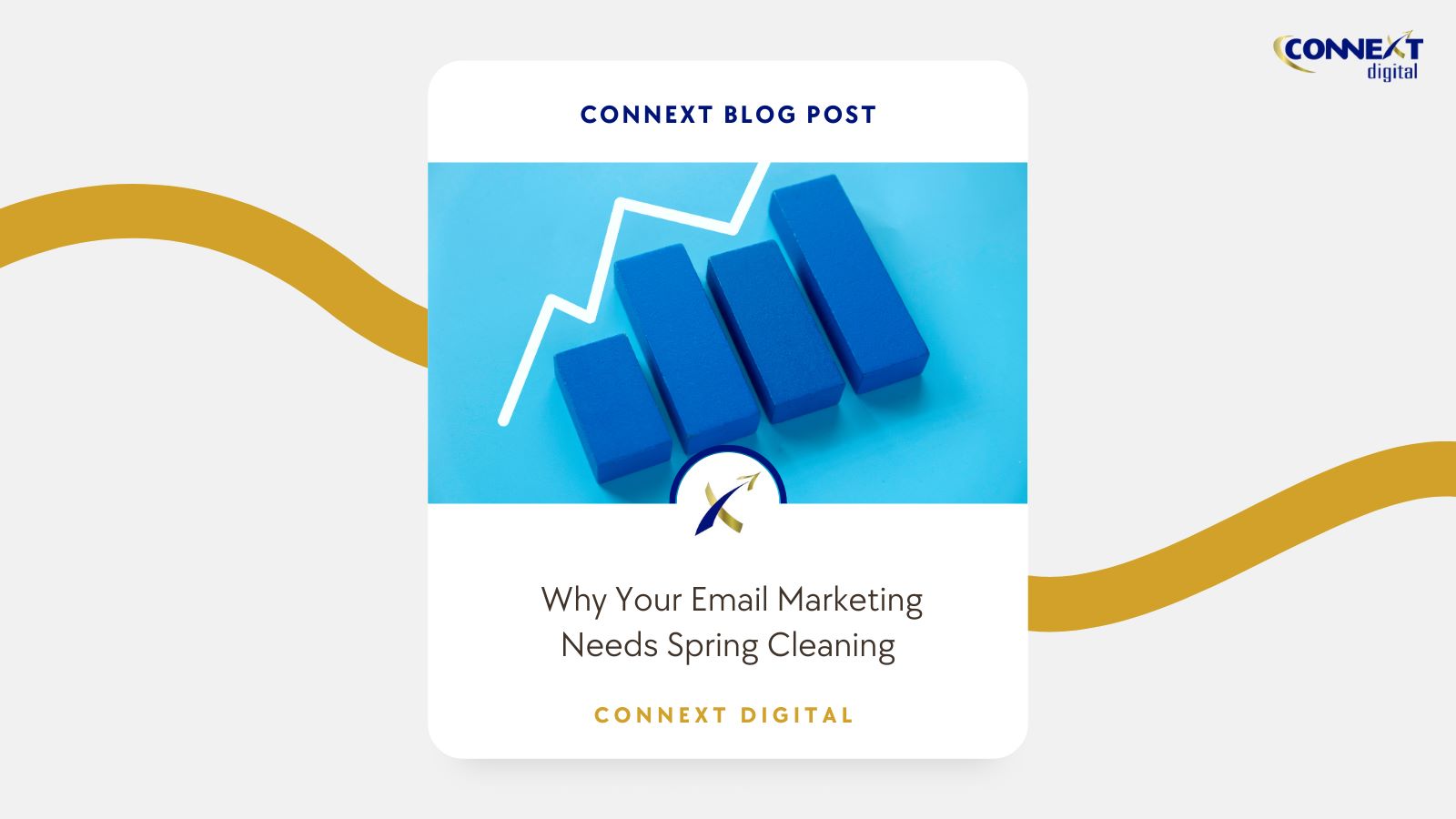
Data Privacy in Marketing: Best Practices for Protecting Customer Information
As time goes on in the Digital and Email Marketing world, data privacy has become a concern for both consumers and businesses alike. At Connext, we know and understand that protecting customer information has never been more critical. In this blog post, we’ll explore some best practices for safeguarding customer data while still effectively leveraging it for marketing purposes. Our data practices are founded on these principles and we are always using compliant and accurate data for our clients and partners.
Transparency is Key:
- Be transparent with your customers about what data you collect, how it’s used, and who has access to it. This builds trust and fosters a positive relationship with your audience.
- Clearly outline your data privacy policies on your website and in any communications with clients/partners. Allowing for an easy way to opt in or out on your website is always a great way to build trust.
Obtain Explicit Consent:
- Make sure you prioritize obtaining explicit consent from customers before collecting any personal data. This includes email addresses, demographic information, and more.
- Ensure that all customers have the option to opt-in or out of data collection and future marketing communications.
Implement Security Measures:
- As a data provider you always want to have security measures in place to protect customer data from unauthorized access, breaches, and cyber-attacks.
- Utilize encryption, firewalls, and other cybersecurity protocols to safeguard sensitive information.
Keep Data Up-to-Date:
- Regularly review and purge outdated and no longer valid data from your system to minimize the risk of a data breach and to avoid sending to users that are no longer relevant (this will also minimize spam complaints).
Educate Employees:
- Educate your employees about the importance of data privacy and the role they play in protecting customer information.
- Implement training programs to ensure that all staff members understand best practices for handling and securing sensitive data.
Regularly Audit and Update Data Practices:
- Conduct regular audits of your data privacy practices to identify any potential vulnerabilities or areas for improvement.
- Stay informed about changes in data privacy regulations and update your practices internally and externally to ensure compliance.
Respect Customer Preferences:
- Respect customer preferences regarding data usage and marketing communications. Honor opt-out requests promptly to ensure that customers have control over their personal information.
- Implement mechanisms for customers to easily update their preferences and manage their consent settings.
By prioritizing data privacy and implementing these best practices, businesses can feel relief when they partner with Connext. We are always protecting customer information while still effectively leveraging the data for marketing purposes. Building a foundation of trust and respect for customer privacy not only enhances brand reputation but also fosters long-term customer loyalty. Protecting customer privacy is not just a legal requirement—it’s a fundamental aspect of ethical business practices that we always strive to follow!
Jessica Rodriguez
Search for:
Subscribe to our Newsletter!
Most Popular Blog Posts





